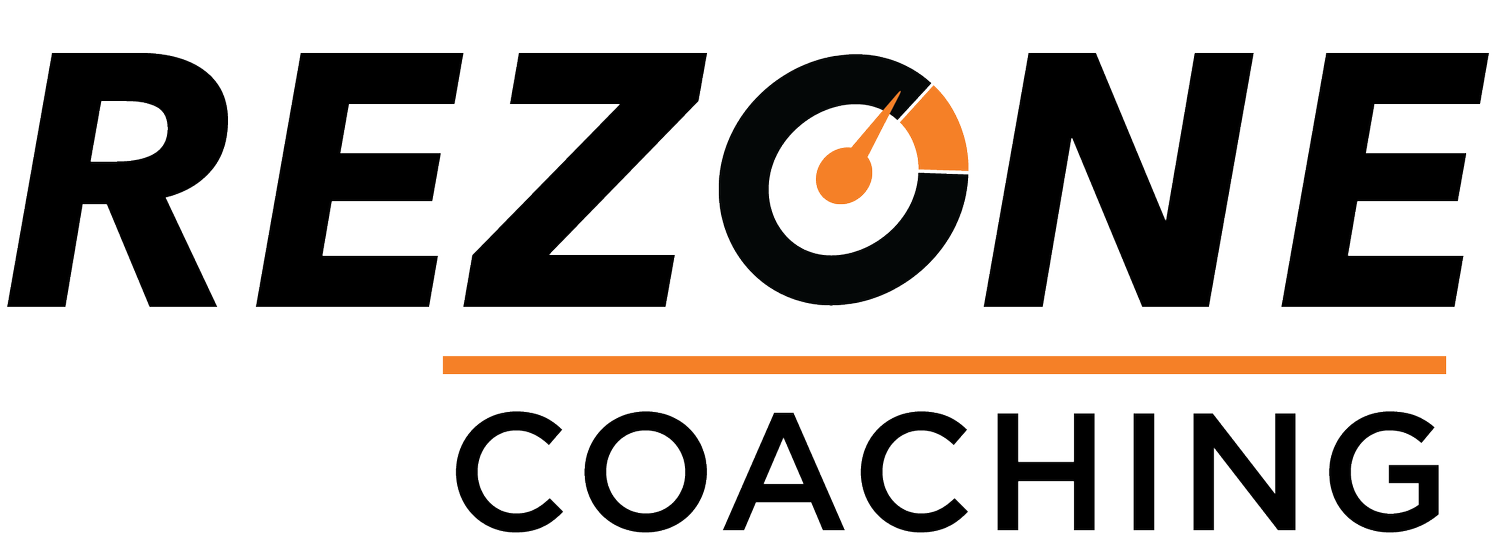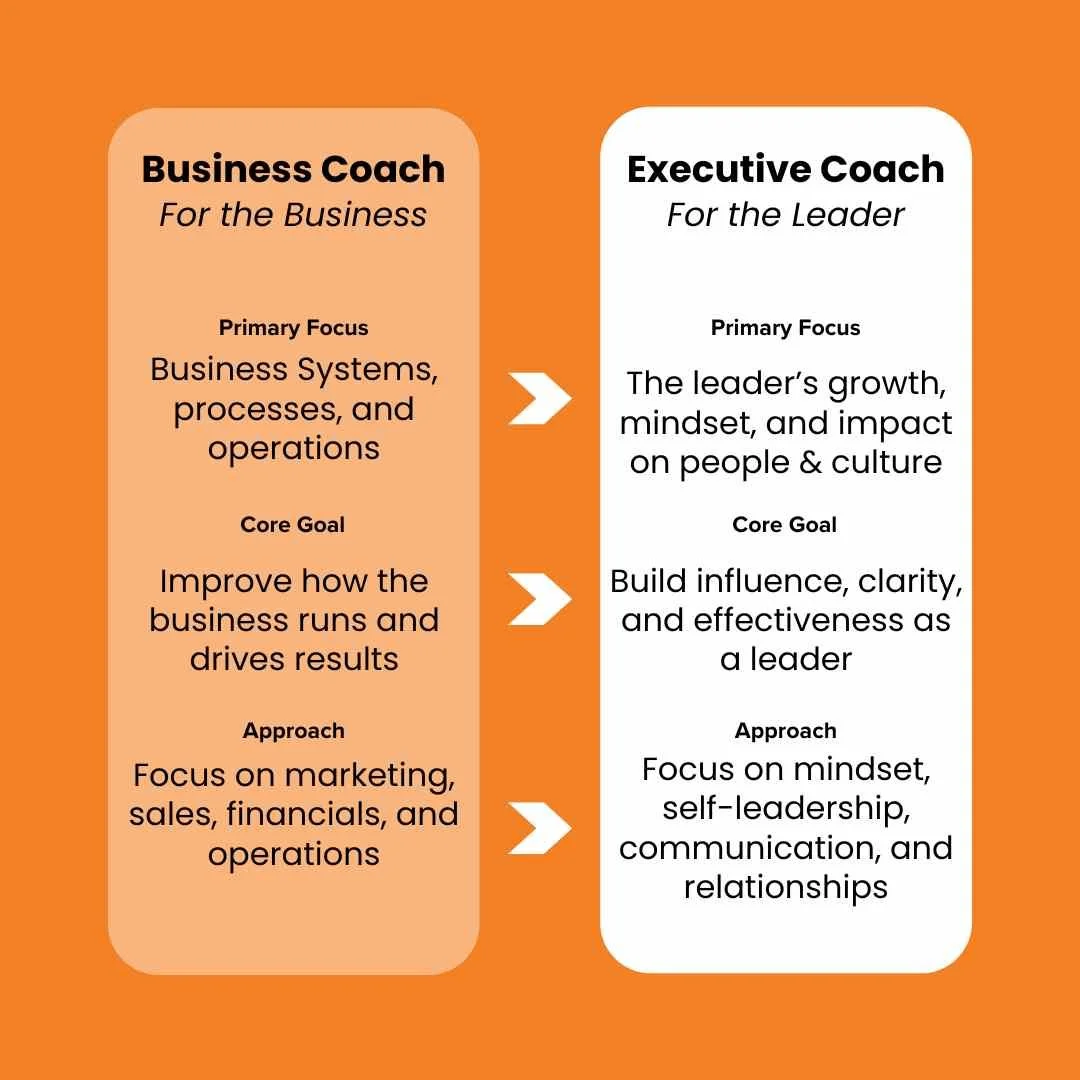Executive vs Business Coaching
Different Focus. Different Outcomes.
Executive vs Business Coaching: Different Focus. Different Outcomes.
I was recently introduced to someone as “Brian, the business coach.” My reaction was a mix of a chuckle and a little frustration as I thought: Here we go again… haven’t I made this clear before?
It wasn’t a big deal, but the truth is, it happens more often than I expect. The reality is, I did spend part of my career as a business coach (2013–2016). But since 2017, my work has focused on something different: executive leadership coaching. And while the two sound similar, they’re not the same.
I get why people sometimes label me a business coach. After all, I coach leaders in the context of their work (i.e., business). And yes, there can be some overlap in topics and issues that come up no matter which type of coach you are working with. But the difference lies in the primary goals and objectives at the start. Executive coaching is focused on the leader: their mindset, influence, and impact on others. Business coaching is focused on the business: its systems, processes, strategies, and profitability. That distinction makes all the difference.
What Each Type of Coaching Focuses On
All coaching is generally about finding clarity, taking action, and making progress. By slowing down long enough to gain a clear picture of things as they truly are, the client and coach can chart a path forward toward the outcomes they seek. Those are the similarities.
Executive coaching focuses directly on the leader. It helps them see more clearly how they are thinking and acting, while also exploring what’s possible if they choose to shift their approach.
Business coaching, on the other hand, puts the spotlight on the business itself. It examines how the organization is structured and operating today, and identifies where adjustments can lead to stronger results going forward.
How the Work Gets Done
Great coaching is more than just interesting conversations. It involves using specialized tools and resources that reveal where things stand today and provide a way to measure progress over time.
In executive coaching, the focus is on the leader. Tools such as 360 feedback interviews, leadership assessments, and planning or reflective exercises help leaders see themselves more clearly. Early in the process, these tools often shape a personal growth plan that guides development efforts. Revisiting them throughout the work helps track what is and isn’t working and highlights where adjustments are needed.
Business coaching, on the other hand, shines the light on the organization. The process often begins with reflective questionnaires about systems and processes, a close review of financials, and an assessment of current strategic plans and goals. From there, tools like KPIs, dashboards, sales and marketing funnels, and process maps may be introduced. These are updated and revisited regularly to identify what’s working and where changes are required.
Focus, Goal, and Approach.
Both types of coaching are valuable. The key is knowing which will create the change you’re looking for.
What Success Looks Like
Executive coaching develops the leader, and in turn, the organization feels the benefit. Stronger decision-making, healthier team culture, higher engagement, and greater effectiveness all ripple outward from the leader’s growth.
Business coaching strengthens the business itself. Revenue growth, improved margins, more efficient systems, and a model that can operate independently of its founder are the markers of success. And as the organization improves, the leaders and everyone involved experience the benefits of greater clarity, structure, and focus.
Executive coaching builds stronger leaders who impact the business. Business coaching builds stronger businesses that impact the leader.
Why Choosing the Right Fit Matters
Time is a finite resource. Money is a valuable resource. Choosing the wrong type of coach risks wasting both.
Two situations may look almost identical from the outside: an owner wants to step back from the day-to-day, and a new leader is promoted to take over. In one case, a business coach may be the right fit, helping establish systems, processes, and structure while supporting the leader in managing them. In another, an executive coach may be the better choice, helping the new leader understand themselves and their influence on others. The distinction matters because systems without strong leadership often fail, just as leaders without solid structures in place will struggle to succeed.
Both coaching paths create value, but in different ways. Clarity up front ensures you don’t invest in the wrong solution.
The Bottom Line
To be clear, I’m an executive leadership coach. My focus is on helping leaders understand themselves more fully, strengthen their influence, and improve the way they impact others and their organizations. If you’re looking to deepen your leadership and maximize your impact, let’s connect. I’d love to chat with you about how executive coaching can support your goals.
Business coaching, on the other hand, is also an important tool. If your situation calls for a business coach and you don’t already have one in mind, let me know. I have a network of trusted coaches, each with their own unique strengths and approaches, and I’d be glad to help connect you with the right resource for your situation.
Brian Houp is an executive leadership coach specializing in helping 1st-time executives thrive at the senior level. Read Brian Houp’s full executive profile here.


